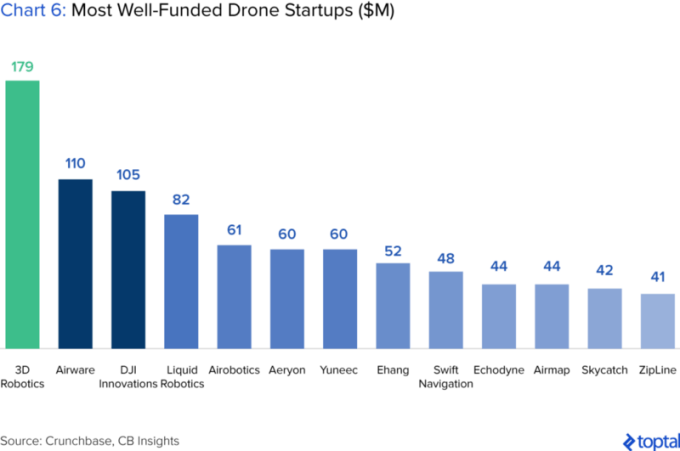Ghana-based drone delivery startup, Zipline is set to benefit from a $10 million tax waiver from the Ghanaian government. The government has agreed to waive taxes to the tune of over US$10 million to enable the Ministry of Health to purchase materials and equipment for Fly Zipline Ghana Limited. The request will pave the way for Zipline to deliver emergency health and blood products to public health facilities in the country under the service agreement between the company and the Government of Ghana.

Fly Zipline Ghana Limited has a service agreement with Ghana to use drones to distribute essential medicines to remote areas of the country, and per the terms of the agreement, the company will install, operate and maintain the drones.
Here Is All You Need To Know
- In April 2019, Ghanaian Vice President,Mahamudu Bawumia, signed a deal with Zipline to use drones to cover over 2,000 health facilities in Ghana which serve 12 million Ghanaians (out of a population of just 30 million).
- By the terms of the agreement, Zipline is expected to begin operations from small community clinics and vaccination centers and then reach out to larger general hospitals.
The Terms Of The Deal, In Part, Are As Follows:
- Zipline is to make 600 deliveries a day (150 deliveries from each of the four centers it would be operating from) for the next four years and they will be paid per successful delivery.
- For that to happen, Ghana has been billed $12.5 million by Zipline to cover the period.
- The hope of Ghana’s health policymakers is that the drone delivery system which has faster drop-off rate will improve its health outcomes including reducing its maternal and infant mortality rates.
- The delivery program, if successful, will also help to reduce the incidence of wastage of medical products, as a result of overstocking at hospitals.
- According to the World Health Organization, “severe bleeding during delivery or after childbirth is the commonest cause of maternal mortality and contributes to around 34% of maternal deaths in Africa.” The timely access to safe blood could save many lives.

Critics Say This Is A Big Hoax
Although Zipline is describing the Ghana operation as the world’s largest drone delivery service, Ghanaian naysayers called out the government for wasting such amount of money, which should have been spent on more important and simpler things the health sector really needs such as the critical shortage of hospital beds, gloves, consistent supply of water and the improvement of hospital buildings.
Zipline appears, however, to be all out for business and does not seem to be buying into any of the stories. It plans to make Ghana the base for training future Zipline flight operators and prepares further to expand into more countries in the coming years. Already, Uganda, Senegal and some states in Nigeria are expressing interests in the drone delivery system. Zipline’s operations in Rwanda in 2016, delivering blood and blood products during emergencies, were largely successful.
The company is targeting the “last mile delivery” challenge which many logistics operators face in African cities and rural area where road networks are either underdeveloped or poorly maintained. The focus of last mile logistics is to deliver items to the end user as fast as possible.
From Delivering Blood to Delivering Pizza, Drones Have To Inspire New Generations of African Logistics Startups or Drone Manufacturers
According to a research report from Radiant Insight, “Unmanned aerial systems(UAS) markets (mostly dominated by drones) stood at $609 million in 2014. They are also expected to grow to $4.8 billion dollars, worldwide by 2021. The leading markets for drone use and sales include oil and gas mapping, utility line inspection, package delivery, and agricultural applications
The American startup which delivers medical supplies, including blood, rabies vaccines and antivenom, to thousands of hard-to-reach health clinics in Rwanda and Ghana achieved a unicorn status in May 2019, having reached $1.2 billion in valuation.
The startup crossed the line in a $190 million new venture funding from top venture capitalists, including Baillie Gifford, The Rise Fund (which is TPG’s global impact fund), Temasek, Alphabet’s investment arm GV and Katalyst Ventures. The funding brought Zipline’s total capital raised to $225 million, before finally putting its market worth at $1.2 billion.
The contract is expected to run for a four-year period.
Charles Rapulu Udoh

Charles Rapulu Udoh is a Lagos-based lawyer who has advised startups across Africa on issues such as startup funding (Venture Capital, Debt financing, private equity, angel investing etc), taxation, strategies, etc. He also has special focus on the protection of business or brands’ intellectual property rights ( such as trademark, patent or design) across Africa and other foreign jurisdictions.
He is well versed on issues of ESG (sustainability), media and entertainment law, corporate finance and governance.
He is also an award-winning writer.
He could be contacted at udohrapulu@gmail.com
